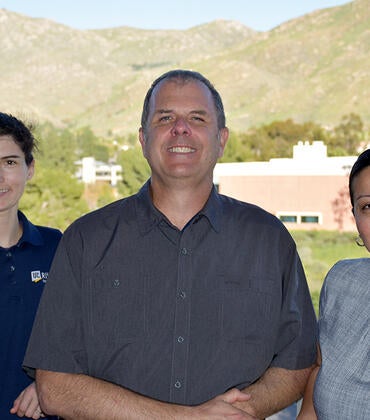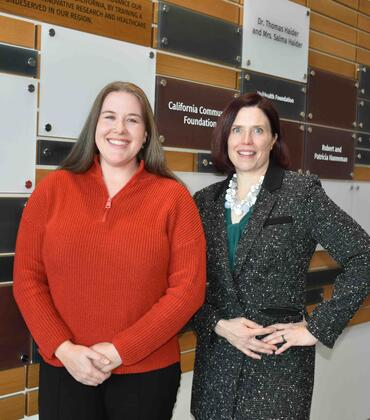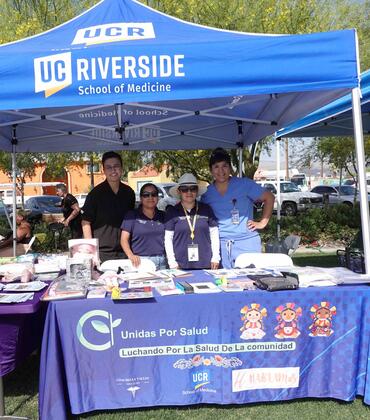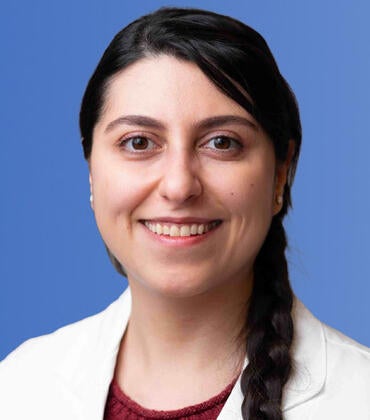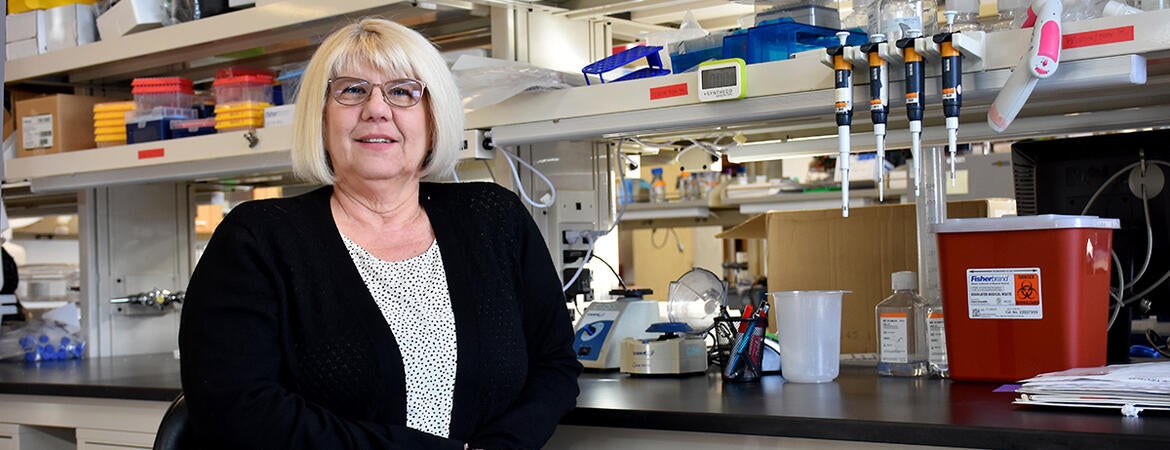
When the UCR School of Medicine received preliminary accreditation in 2012, Djurdjica Coss, PhD, was immediately interested in a faculty position. “That was big news; you can't create a medical school every day,” recalled Coss, who earned her PhD from UCR in 2000. “When they started hiring, I applied right away.”
Coss, now a professor of biomedical sciences and researcher for over a decade at the UCR SOM, first came to UCR as a graduate student during the civil war in her home country of Yugoslavia. A few years previously, her one-year student exchange program in San Diego in 1991 led her to settle in the area when the war prevented her from returning home.
Coss knew since the seventh grade that she wanted to study biochemistry or molecular biology, so after finishing her bachelor’s degree and getting married in the U.S., she began looking for graduate programs. “What attracted me originally to UC Riverside was this small campus feel, with all the opportunities of the big universities,” she said. “Coming from a foreign country, from a different system of education, it felt a little more secure."
Her applicant interview with Ameae Walker, PhD, a professor of biomedical sciences, solidified her decision. “I really felt that faculty cared about students and were connected to students,” Coss recalled. She joined the school in 1994, seven years after the start of its biomedical sciences PhD program, with Walker and Richard Luben, PhD, now professor emeritus of biomedical sciences and biochemistry, as her main advisors. Coss’ interest in endocrinology and hormones led her to join Walker’s lab, where she studied the role of the hormone prolactin in bone development while completing her degree.
Walker recalled Coss being a “fantastic student” who staunchly defended her work, even in the face of challenges. “She had two babies, and it was the time of the war in Yugoslavia so she was also worried about her parents, and yet she did a phenomenal job in the lab,” Walker said. “In addition to that, [in] the project that she ended up doing she produced data that were controversial in the field, and when we were at meetings she would just stand up there and defend it like you wouldn't believe,” Walker continued. “Having her come back I think was wonderful for biomed.”
Returning to UCR as faculty
Coss pursued her postdoctoral work and research career at UC San Diego, and planned to stay there--until UCR announced the opening of its medical school.
She chose to return to UCR in part because of her dedication to the SOM’s mission to improve healthcare in the Inland Empire. “It affected my decision to come back to UCR, because it really means giving back to this area that is underserved, contributing to the economic growth by performing research in this area, and treating people that don't have many resources that other medical schools have,” she said.
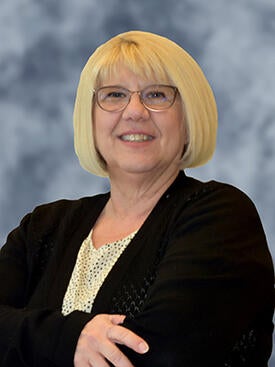
Coss added that she hoped to contribute to the research mission of this school--with her research itself supporting the SOM’s mission. Currently, her work focuses on the role of obesity in reproductive health. She noticed that subfertility in the population, with 1 in 8 couples requiring assistance to have a child according to the National Infertility Association, coincided with rising levels of obesity. “Most of the time we think of this as an issue for metabolic health and cardiovascular disease,” Coss said. "But for me as a reproductive endocrinologist, the whole survival of the species is a big issue because the negative effects of obesity include low sperm number and the inability to get pregnant in women."
Coss continued that it’s a global issue, but particularly affects underserved areas such as the Inland Empire where there are significant health disparities along with reduced access to healthy food.
Her research has helped further scientists’ understanding of obesity. Coss explained that obesity is a chronic state that alters communications between neurons, resulting in people often regaining weight that they lost. Her team found one of the mechanisms that affects obesity-related changes in the brain. Future studies, she said, will examine the potential for reversing these changes.
Coss said she looks forward to teaching the next generation of scientists. “We have to educate future generations, either clinicians when I lecture in the medical school, or training the future generation of researchers that will continue the work that I am doing,” she said, adding that she’s right where she wants to be in her career. “I consider myself exceedingly lucky that I managed to accomplish what I always wanted [for work],” she said. “There was no plan B for what I wanted to do.”
Her students recognized her dedication, with graduate students selecting her for the Magnificent Mentor award several years ago. “I really appreciated that,” Coss said. “I can't do research by myself in my own bubble, and doing it with graduate students, training them, teaching them, not only with hands on, but teaching them to think scientifically, to really evaluate scientific literature, to identify new and emerging problems and how they can address them to improve the lives of people around us, is really what drives me.”
Maintaining the SOM’s unique culture
Even as the SOM has grown, Coss said it has maintained the small campus culture that first attracted her to the school in the 1990s. “I think it was the right decision to come back because I liked that culture, and I still like it now,” she said. “I feel that the faculty are still the same, they still care about students and about helping each other.”
The school has so far kept its nurturing environment, Coss said, in part by hiring faculty that care about the future of the SOM and its students. “I think it was intentional hiring of faculty that live and breathe the mission of the campus, to help the people in the Inland Empire and contribute to the growth of a region by educating undergrads,” she said. “So I think that the soul of the university did not change."
As the UCR SOM continues to develop, Coss said she hopes to help maintain the SOM’s culture while keeping it closely integrated with the larger university, a goal that led her to become UCR’s associate vice chancellor for research and economic development in 2023. While the Division of Biomedical Sciences has only 26 faculty members, its graduate program has 70 participating faculty from other divisions across campus. “I think that's what helps us recruit students and gives us the possibility to provide a wider picture and wider education for our students,” she said, calling the school’s diverse faculty a “unique strength.” “That's my hope for the future, that we will continue to grow, but not so fast as to forget our roots and our culture."
The SOM’s growth also reflects the overall success of the biomedical sciences division, which is celebrating its 50th anniversary this year. “It demonstrates that we managed to build something very important for the Inland Empire and for the future of this region, and it’s due to the dedication of those first faculty who were my mentors when I was a graduate student,” Coss said. “We need to celebrate them, because it's only through their dedication and perseverance, and then the vision of new leadership, that we managed to build this whole new school.”
